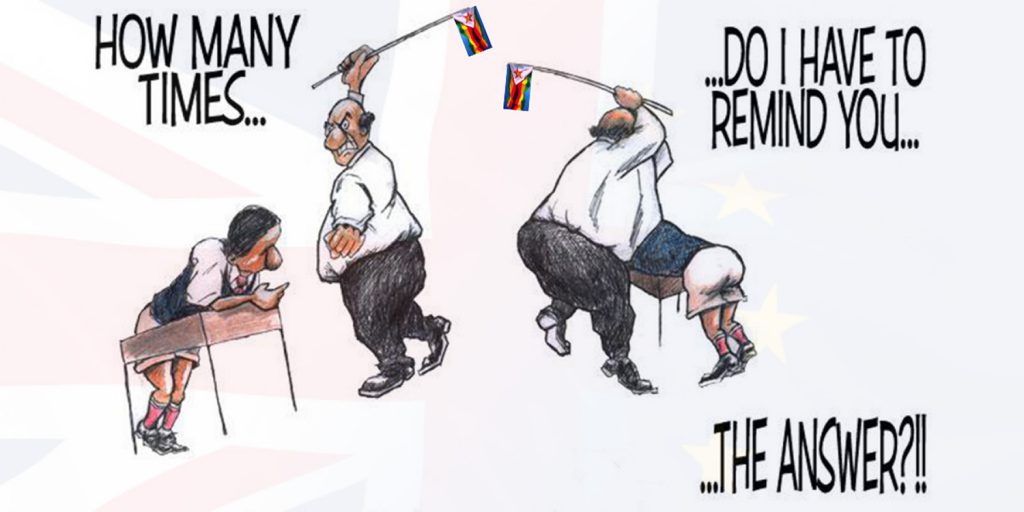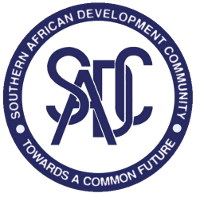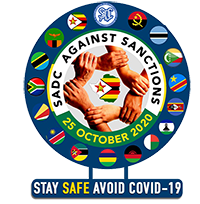Mabasa Sasa
There is an aspect of the Zimbabwe story that those who say the country’s problems are self-inflicted never want to talk about.
Before Washington officially unleashed its onslaught on Harare, former US Assistant Secretary of State for African Affairs Chester Crocker made a shocking statement, which has remained under-reported ever since.
While preparing for a Senate debate on the Zimbabwe Democracy and Economic Recovery Act, which lays the foundation for official sanctions on the country, Crocker reportedly said: “To separate the Zimbabwean people from Zanu-PF, we are going to have to make their economy scream, and I hope you, senators, have the stomach for what you have to do.”
Those are the words and intentions of the power brokers in Washington. It is not Zanu-PF propaganda.
With such a damning admission, why then do we still have claims that the sanctions on Zimbabwe do not affect ordinary people and are “targeted” at President Emmerson Mnangagwa and his “cronies”?
How many times have read about the US blacklisting companies, including banks and mining houses, as if such acts do not negatively affect all Zimbabweans, especially ordinary people?
Are we not seeing an attempt to continuously create disaffection within the general populace?
Here’s another byte from Crocker: “So if we were to decide to try and work for change in power in Zimbabwe, I would hope that we would have the wisdom to be discrete, to be low-key and to avoid giving those in power there the excuse that foreigners are out to get them.”
This was at 106th Congress House Hearings on “Zimbabwe: Democracy on the Line” on June 13, 2000.
Why then should anyone claim to know the US policy on Zimbabwe better than the Americans who formulated that policy and implement it with deadly precision?
Evidently, those who still claim Zimbabwe’s problems are self-inflicted are living testimony to how good the Americans have been in heeding Crocker’s advice to be “discrete, to be low-key and to avoid giving those in power there the excuse that foreigners are out to get them”.
While Zimbabwe is certainly bearing the brunt of this onslaught, the real target is not President Mnangagwa: it is Africa and all other Third World leaders at large.
Zimbabwe is a stick that is being used to beat anyone else who dares challenge the order of things.
Zimbabwe’s list of “crimes” against Western powers reads as follows: it unceremoniously dumped structural adjustment programmes after realising they were doing more harm than good; it deployed militarily in the DRC against Western-backed troops; it instituted popular land reforms that acted as a precursor to wider economic empowerment; it continues to put the interests of its own people ahead of the interests of the West.
This is not the kind of example the West wants the rest of the developing world to follow.
The same one as Salvador Allende’s in Chile of the 1970s.
Allende came into power on the back of a promise to “redistribute income and reshape the … economy” through the nationalisation of major industries, like copper mining, and the expansion of agrarian reform.
The US resolved it would not sit back and watch this happen.
Henry Kissinger, the then US Secretary of State, infamously declared in June 1970: “I don’t see why we need to stand by and watch a country go communist because of the irresponsibility of its own people.”
There are stark shades there of Crocker, three decades later, talking about separating the people from their preferred leaders.
How did the US go about it?
Through the CIA (as shown in declassified documents and research by scholars over the years), the US spent “more money per capita to support Allende’s opponent, Eduardo Frei, than Lyndon Johnson and Barry Goldwater” combined spent on their own presidential elections in the US in 1970.
Simply check how much the West has set aside over the years to support any group or individual who opposes Zanu-PF.
Here’s another similarity, at one meeting Kissinger and President Nixon told then CIA Director Richard Helms to “make the (Chilean) economy scream…”
What more does anyone need to be told about what the sanctions on Zimbabwe are all about? Is the agenda not clear for all to see?
But why the inordinate interest in Chile, and on our case little Zimbabwe, by a US that is so big and so economically might?
Professor Noam Chomsky provides the answer: “Chile (was) a fairly big place, with a lot of natural resources but the United States wasn’t going to collapse if Chile became independent.
“Why were we so concerned about it? According to Kissinger, Chile was a ‘virus’ that would ‘infect’ the region with effects all the way to Italy.”
So in the present context, Zimbabwe is a “virus” that the US fears. We are an “unusual” and “continuing threat” to US foreign policy.
Thankfully, Sadc has seen this and now the region is saying “NO!” to these destructive Western machinations.





